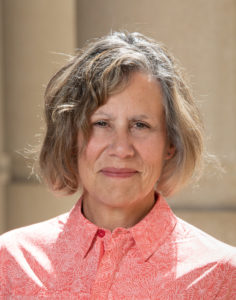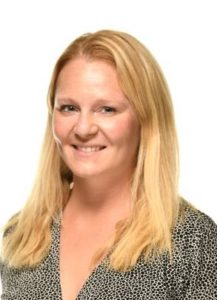Editor’s Note: On Nov. 30, Source published an article on the recent visit to CSU of Adrianna Kezar, Dean’s Professor of Leadership and Wilbur-Kieffer Professor of Higher Education at the University of Southern California, director of the Pullias Center for Higher Education, and a national expert on change, governance and leadership in higher education. This guest column is a reflection by Faculty Council Chair Sue Doe and Committee on Non-Tenure-Track Faculty (CoNTTF) Chair Jenny Morse on Kezar’s visit, what’s still needed and the heavy lift that has been done by NTTF allies and advocates at CSU for many years.

Adrianna Kezar is a national expert and thought leader on the changing composition of faculty in higher education, specifically the rise of non-tenure-track faculty. Kezar’s visit was an important step for CSU to take in figuring out how to move forward with just and equitable policies and practices related to varying faculty classifications. She outlined many changes universities should be undertaking to better acknowledge non-tenure-track faculty, and she praised CSU for having already committed to many of them. Kezar spoke of including non-tenure-track faculty in shared governance, making sure NTTF/CCAF have voting rights and adequate representation. She spoke of creating promotional pathways for NTTF/CCAF and granting paid professional development opportunities.
Much of this has already been codified as policy at CSU, and let’s remember how that happened: CoNTTF, a Faculty Council standing committee made up of one NTTF/CCAF from each college and the libraries, alongside two tenure-line faculty, worked for many years to draft, propose, revise, and support changes to faculty appointments and ranks that would establish promotional pathways and professional development opportunities for NTTF/CCAF. These changes were codified in 2018 by majority vote of the Faculty Council. CoNTTF also worked for a half dozen years to get voting rights and representation for NTTF/CCAF, a feat which was finally accomplished in December 2020.

In fact, most of what Kezar recommended has already been established as policy at CSU. What has not been achieved is the consistent enactment of these policies within departments and colleges. So it is our hope that the work that Kezar did with chairs, deans, and other administrators will yield consistent practice of existing policy. We also hope that her visit will spur additional changes, especially a commitment to providing a living wage for all faculty, the central need identified by NTTF/CCAF during the Q&A at Kezar’s keynote last November.
Today at CSU we have 754 NTTF, according to Institutional Research. More than 500 have been at CSU for at least five years and work more than 50-percent time for the university. Nearly 60 percent are women, while only 40 percent of tenure-line faculty are women. More than 300 have a terminal degree. These faculty (along with GTAs and AP staff who do supplemental teaching) provide instruction for approximately 65 percent of the student credit hours at CSU. NTTF are committed to CSU, are experts in their fields, and are generating the majority of the tuition dollars that make up CSU’s budget. They are also disproportionately women. Not surprisingly, they are paid, on average, 50 percent of what tenured faculty are paid.
Having an outside expert come to CSU to tell us what we are doing right and where we can improve is useful. However, the value of Kezar’s visit will be demonstrated if it successfully drives change. Change needs to take two forms: 1) campus leaders need to consistently enact the policies that have been codified, and 2) compensation for NTTF/CCAF must be equitably and substantially improved.
Jenny Morse, Chair of CoNTTF
Sue Doe, Chair of Faculty Council